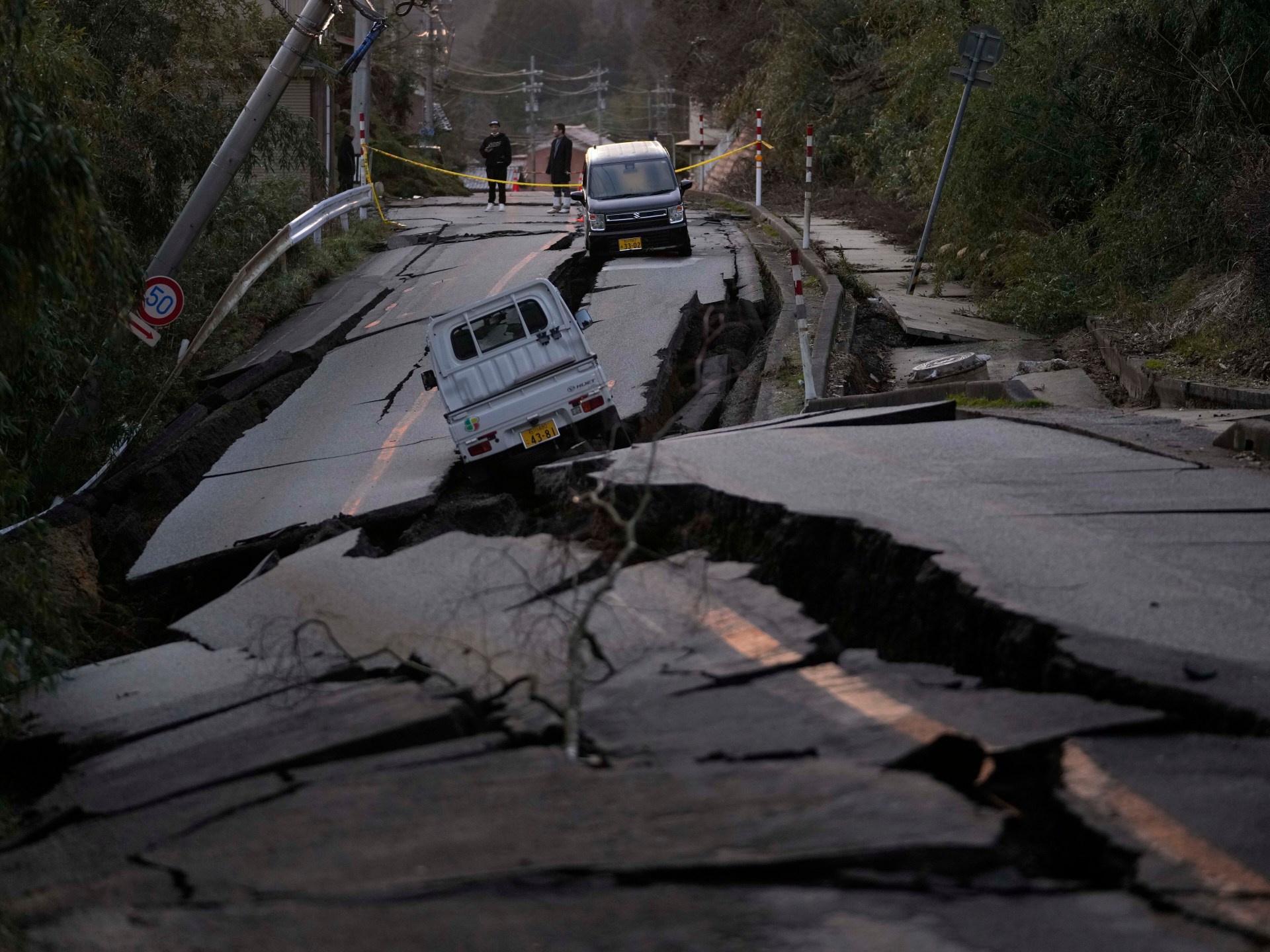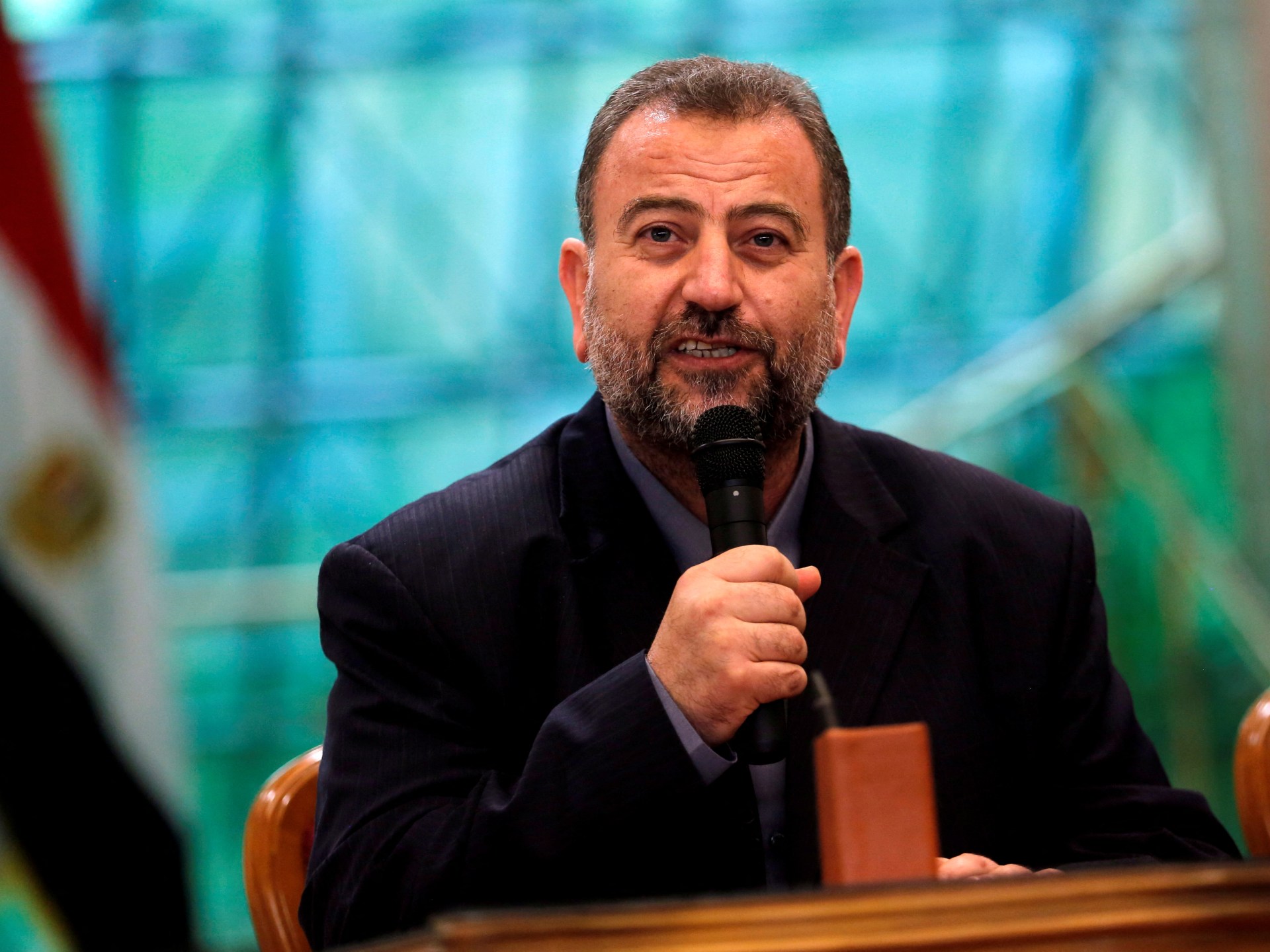Kyiv, Ukraine – When Hamas attacked Israel on October 7, the world’s attention shifted from the Russian-Ukrainian war to the Middle East conflict.
As the new war flared, Ukrainian officials and some observers were quick to accuse Moscow of meddling and to make even graver allegations that it was supplying the Palestinian group with weapons.
They provided no evidence for their claims.
“Russia is interested in triggering a war in the Middle East, so that a new source of pain and suffering could undermine world unity, increase discord and contradictions, and thus help Russia destroy freedom in Europe,” said Ukraine’s President Volodymyr Zelenskyy at the time.
“We see Russian propagandists gloating. We see Moscow’s Iranian friends openly supporting those who attacked Israel. And all of this is a much greater threat than the world currently perceives. The world wars of the past started with local aggressions.”
Kyrylo Budanov, Ukraine’s top intelligence officer, alleged that Moscow may have provided Hamas with arms seized in Ukraine in what would appear as a perfect way to cover Russia’s fingerprints.
“We all clearly see that trophy arms from Ukraine have indeed been passed to the Hamas group. Mostly, it’s infantry weapons,” he told the Ukrainska Pravda newspaper on October 12.
But several experts have warned that despite decades-long amicability between Russia, Hamas, and Iran, there is no concrete proof of Russian arms supplies.
“We don’t see the main thing – a statement from the Israeli military and their demonstration of the Hamas arms they seized,” Nikolay Mitrokhin of Germany’s University of Bremen told Al Jazeera.
“So far, there’s no proof of sizable arms supplies from Russia to Gaza,” he said. “They may very likely emerge after [Israel finishes] the clean-up of Gaza, but only then it will make sense to talk about them.”
After the Hamas attacks, Israel began a relentless bombing campaign in Gaza, with the stated aim of crushing the Palestinian group that governs the densely populated enclave.
More than 1,200 were killed in Israel – among them more than a dozen Russian nationals – and more than 200 were captured in the Hamas attacks. Israel’s offensive in Gaza has killed more than 11,200 Palestinians.
Vera Mironova, a Russian-American security expert and author, has renewed the weapons claim, telling Al Jazeera that a former US senior security official is preparing to release a detailed report on the alleged link between the Hamas attack and Russia.
“It was absolutely coordinated with Moscow,” said Mironova, who is currently a research fellow at Harvard University.
Russian President Vladimir Putin “didn’t say things like ‘attack [Israel], but it was 100 percent coordinated”, she claimed.
Mironova alleged again that Russia supplied arms to Hamas – and did it via Iran and Syria to “distance itself” from the conflict.
“Russia has enough weapons to supply” its war effort in Ukraine and its allies in the Middle East, she claimed.
In return, she said, Iran is providing Russia with more inexpensive kamikaze drones so that their swarms are launched to wreak havoc and overwhelm Western-supplied air defence systems such as the US-made MIM-104 Patriot or the Norwegian-made NASAMS.
Al Jazeera was not able to independently verify Mironova’s allegations.
Undocumented allegations of weapons deliveries go both ways.
Last month, former Russian President and Prime Minister Dmitry Medvedev suggested that NATO arms sent to Ukraine “ended up” in the hands of Hamas fighters.
“So, NATO friends, game over? The weapons supplied to the Nazi regime in Ukraine are actively used in Israel,” Medvedev, who currently serves as deputy head of Russia’s Security Council, wrote on Telegram on October 9.
“It will only get worse. Expect missiles, tanks and soon planes from Kyiv on the black market,” he wrote.
According to Igar Tyshkevich, a Kyiv-based foreign policy expert at the Ukrainian Institute of the Future, Russia might have shipped Western arms seized in Ukraine, but the possible sources of these weapons could have been Afghanistan, where huge amounts of Western equipment were left after “the hurried withdrawal of Americans” in 2021.
Another possible source is Iraq, where Iran’s Islamic Revolutionary Guard Corps (IRGC) sided with pro-US Iraqi forces to fight ISIL (ISIS) in 2014, he told Al Jazeera. Syria could have been one more source of weaponry – given the past presence of US troops and President Bashar al-Assad’s political proximity to Iran, he said.
Hamas, for its part, has not commented on the continued claims about its supplies.
On October 26, Russia played host to Hamas leaders, a defiant move against the West likely aimed at demonstrating its diplomatic clout.
Israel decried the meeting in Moscow as “reprehensible”.
Days earlier, Hamas had thanked Putin for his diplomatic support. The Russian leader took days to condemn Hamas’s assault, and in his first comments on the crisis blamed the “failure of the United States’ policy in the Middle East”.
“[We] appreciate Russian President Vladimir Putin’s position regarding the ongoing Zionist aggression against our people and his rejection of the Gaza siege, the cutting of relief supplies, and the targeting of safe civilians there,” Hamas said in a statement on October 15.
Russia’s relationship with Palestine, Israel
Russia’s current ties with Israel and Hamas are predated by decades of Soviet relations.
Soviet leader Joseph Stalin welcomed the establishment of Israel in 1948, hoping it would become a pro-Moscow socialist nation.
But after Israel aligned itself with the West, Soviets began forging ties with Palestinian leaders – and trained hundreds of fighters in KGB schools.
Thousands more Palestinians studied in universities all over the USSR, from Tallinn to Tashkent – and one of them was Palestinian President Mahmoud Abbas.
He wrote a PhD dissertation titled “Hidden Face: a connection between Zionism and Nazism” in Moscow in 1982 under Yevgeny Primakov, an Arabist and then director of the Institute of Oriental Studies of the USSR Academy of Sciences. Primakov, a spy, would go on to become post-Soviet Russia’s foreign minister and then prime minister in the 1990s.
In 1967, the Kremlin called Israel a “Zionist warmonger” and severed diplomatic ties over the Arab-Israeli war.
But after millions of post-Soviet Jews moved to Israel, Israel began forging closer ties with Moscow.
According to Chatham House experts Nikolay Kozhanov and James Nixey, it is “likely that the Hamas–Israel war means the end of Russia’s decades-long policy of balancing between different players in the Middle East”.
In a recent article, they wrote that given Russia’s welcome of a Hamas delegation in Moscow in October, its refusal to condemn the initial Hamas attack, and its close alliance with Iran, “Tel Aviv no longer considers Russia an ally and would probably reject it as a mediator.”

 Movie
Movie 5 months ago
165
5 months ago
165 






![Presidents Day Weekend Car Sales [2021 Edition] Presidents Day Weekend Car Sales [2021 Edition]](https://www.findthebestcarprice.com/wp-content/uploads/Presidents-Day-Weekend-car-sales.jpg)



 English (United States)
English (United States)